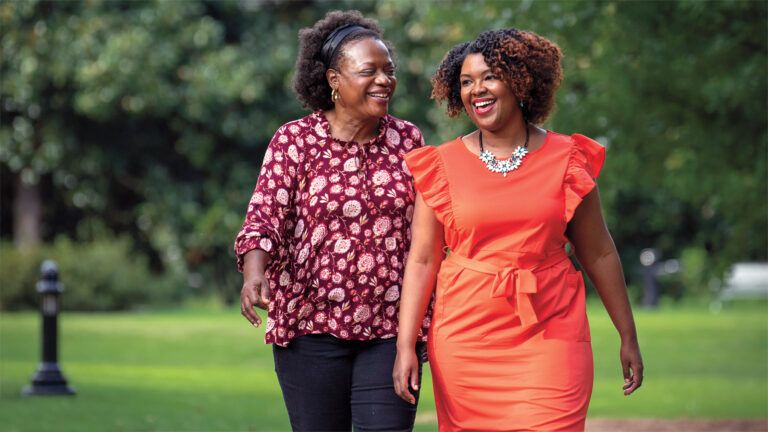Every family wants to have open healthy communication, but it can be a challenge to feel like you’re speaking the same language, especially across generations. It’s even harder if your family needs to have a difficult conversation.
Grandparents might struggle to feel relevant to their kids’ and grandkids’ lives. Parents can feel caught inside the famous sandwich generation; worried they’re not serving their children, their parents, or themselves well enough. Kids and teens often feel misunderstood by the grown-ups in their lives. How can families bridge these divides and communicate so that they foster positive and honest relationships, even during hard conversations?
“Even though you come from a common core, the same tribe, you’re still different people,” says Sherry Amatenstein, a couples therapist and author of the anthology, How Does That Make You Feel? True Confessions from Both Sides of the Therapy Couch. When each generation is entrenched in its own worldview, priorities, and interests, family members tend to push back and lash out because they simply don’t understand each other.
Don’t throw up your hands in frustration, though. Follow these practical tips to encourage positive communication across the generations.
Learn to Listen
Try to listen to each other with curiosity and interest—and without judgment. It’s easier said than done. “We each come to a relationship programmed with a certain perspective,” says Anne McKnight, director of the Bowen Center for the Study of the Family, and those preconceived notions can close us off from truly hearing each other. Instead, listen with an open attitude to help broaden and deepen family relationships.
McKnight suggests families think with openness, “What can a young person learn from the life experience of her grandparents, and what can grandparents learn about the future of the world through understanding social media and the role of video games?”
Use these “active listening” techniques to be fully engaged in and attentive to what your family members are really telling you:
- Maintain eye contact
- Lean toward the speaker
- Don’t interrupt
- Be aware of non-verbal cues that interfere with engaged communication. For example, crossing your arms, shaking your head, rolling your eyes, or sighing audibly all communicate to a family member, “I am not listening to you.”
Set Ground Rules
Conflicts are commonplace in families, as are tough decisions around living arrangements, health care, and other emotionally complex issues. When a difficult conversation comes up for your family, tackle it in a healthy, practical way.
“Agree to some guidelines for the conversation,” says Amatenstein. While each conversation is different, consider these ground rules:
- Use sentences that begin with “I” instead of “you.”
- Agree to listen to one speaker at a time. Consider letting that person hold a stick or other object until they are finished talking. This allows the person speaking to determine when they are finished— and keeps them from being interrupted.
- Set ground rules on the final decision-making process. Will there be a family vote? Will one family member make the call?
- Don’t let one member dominate the conversation or break the ground rules— gently and consistently remind them of the topic everyone’s gathered to discuss.
- Most of all, advises Amatenstein, “keep on topic.”
ABC—Always Be Connecting
Don’t wait for a conflict or a big decision to practice communication skills in your family. Try these approaches to help create encourage good communication.
Cultivate an atmosphere of listening, sharing, and memory-making at every family interaction, even the most casual.
Parents can teach kids to respect and admire their grandparents by encouraging them to interview their elders and report back to the family on what they learned.
Grandparents can try a new activity with their grandchildren (selfie, anyone?) and share a laugh that everyone will remember.
Show appreciation for how each family member contributes to the family, or recognizing them for mastering something new or achieving something at school or work, says Amatenstein. “Send flowers, give an appreciative token,” she advises, “Remember that everyone wants to be acknowledged in a positive way.”






